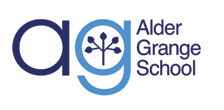The science curriculum intent aims to help pupils make pertinent links between what they learn in science lessons and the real world. The curriculum endeavours to expose pupils to relevant contexts and applications to the theory they study and where possible these should stem from a local/regional setting. Teachers in the department recognise that great teachers don’t just teach their subject, they teach and use the language of the expert.
Our Science Curriculum intent aims to ensure that all pupils at Alder Grange are able to:
Access an inclusive broad range of topics – Schemas are used to populate our Schemes of work and make best use of the children’s time. This includes establishing the fundamental components of topics and the order they need to be covered, as well as informing which topics make up the taught and which make up the learned curriculum.
Discover and develop their knowledge and passions – The curriculum encourages engagement in practical activities whenever possible in the form of both whole class activities and teacher demonstrations. Time in lessons is ring-fenced to deliver the essential skills scientists require and the department sees this aspect of science as important as exam board theory. Where opportunities arise, STEM ambassadors are brought into school to compliment the work undertaken in lessons.
Be prepared for the future –When this curriculum intent is implemented, the result should be that pupils are inspired to be the best that they can be and find that they have started paving the way for a potential career in STEM should this be the path that they want to choose.
Be good citizens – The department recognises its role in delivering the whole school cross curricular themes, especially given the unique moral and social responsibilities bestowed upon the field of science and the importance of science in the wellbeing of people and nature.
The curriculum is intended to promote and value equally, the following cross-curricular themes:
- Culture & the Arts
- STEM & Digital technology
- Language Mastery
- Numeracy
- Reasoning
- Wellbeing – both physical, mental and social
- Spiritual, moral, social and cultural awareness & Citizenship
- Mastery
- Critical thinking//
- Independent learning skills
- Extra curricular projects
- Inclusion

